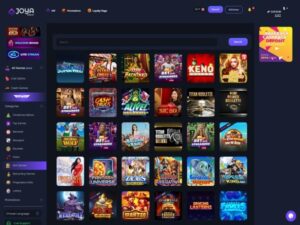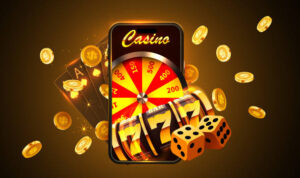Understanding the Signs of Gambling Addiction in Today’s Society 5
Signs of Gambling Addiction in Individuals
Gambling addiction is a significant problem that affects millions of people around the world. Often hidden beneath the surface, the signs of gambling addiction can easily go unnoticed until they manifest in severe consequences. In this article, we will explore the various indicators of gambling addiction and discuss the importance of early intervention. If you or someone you know is struggling with gambling addiction, it’s crucial to understand these signs. Moreover, for those looking for recreational alternatives, consider visiting Signs of Gambling Addiction in Bangladesh jaya 9 as a healthy gaming option.
1. Preoccupation with Gambling
<pOne of the most common signs of gambling addiction is a persistent preoccupation with gambling. Individuals may find themselves constantly thinking about previous gambling experiences or planning their next gambling activities. This obsession can interfere with daily life, including work, school, or personal relationships.
2. Increasing Bet Sizes
<pAnother sign of gambling addiction is the need to increase bet sizes to achieve the same level of excitement. Initially, individuals may gamble small amounts and find enjoyment. However, over time, they may begin to bet larger sums of money in an attempt to recapture the thrill of earlier gambling experiences.
3. Neglecting Responsibilities
<pPeople suffering from gambling addiction often neglect their personal, professional, and academic responsibilities. They may skip work, miss important deadlines, or neglect their family obligations. As gambling takes priority over essential tasks, it can create significant problems in their lives.
4. Chasing Losses
<pChasing losses is a common behavior in gambling addiction. After losing money, individuals may feel compelled to continue gambling, believing they can win back what they lost. This cycle often leads to deeper losses and further financial trouble.
5. Withdrawal Symptoms
<pMuch like substance addiction, individuals with gambling addiction may experience withdrawal symptoms when they are unable to gamble. These symptoms can include irritability, restlessness, and anxiety. Withdrawal can manifest when individuals try to cut back or stop gambling but find it increasingly difficult.
6. Lying About Gambling
<pIndividuals struggling with gambling addiction often lie about their gambling habits to friends, family, or even themselves. They may conceal the extent of their gambling activities or downplay the impact it has on their lives and relationships.
7. Financial Issues
<pGambling addiction frequently leads to severe financial problems. Individuals may accumulate significant debt, sell possessions, or even resort to illegal activities to fund their gambling habit. Financial instability not only affects the individual but can also have dire repercussions on their family and loved ones.
8. Relationship Problems
<pRelationships often suffer due to gambling addiction. Individuals may isolate themselves from friends and family, leading to a breakdown in communication and trust. Partners may become frustrated by the constant lies and financial strain, leading to conflict and, in some cases, separation or divorce.
9. Using Gambling as an Escape
<pMany individuals with gambling addiction use gambling as a way to escape from stress, anxiety, or depression. Instead of addressing these underlying issues, they may turn to gambling as a coping mechanism. This behavior can create a dangerous cycle, where gambling leads to more stress and subsequent gambling.
10. Loss of Interest in Other Activities
<pAs gambling becomes the primary focus, individuals may lose interest in hobbies or activities they once enjoyed. This withdrawal from other aspects of life can further contribute to isolation and dissatisfaction, reinforcing the need for gambling as their only source of pleasure.
Conclusion
<pRecognizing the signs of gambling addiction is vital for timely intervention and support. If you or someone you know exhibits these signs, it’s essential to seek help. Support groups, therapy, and counseling can make a significant difference in recovery. Understanding the issue and finding appropriate resources is key to overcoming gambling addiction and reclaiming a healthier, happier life.


